280 years ago, my ancestors came from Switzerland. Here's what I learned by going back.
I slipped out of a hotel room just after dawn last month for a brisk walk to the banks of the Rhine River in Basel, Switzerland. A gentle gray sky slept overhead, the cobblestone streets lay silent.
I took off my sneakers and waded into the river’s clear waters. Treading slowly, I gazed up at centuries-old buildings and studied their gabled roofs and church spires. It was a beautiful moment in a week full of them in the alpine country – “Europe’s playground,” as they call it. I could scarcely believe the moment was real.
Then, my mind drifted somewhere deeper.
Nearly three centuries earlier, in 1743, it was highly likely that Hans Ulrich Baggenstoss, my tenth-generation ancestor, passed through the exact same spot under very different circumstances. He was among a bevy of Swiss and Germans leaving the region for a new life in the British colonies in America.
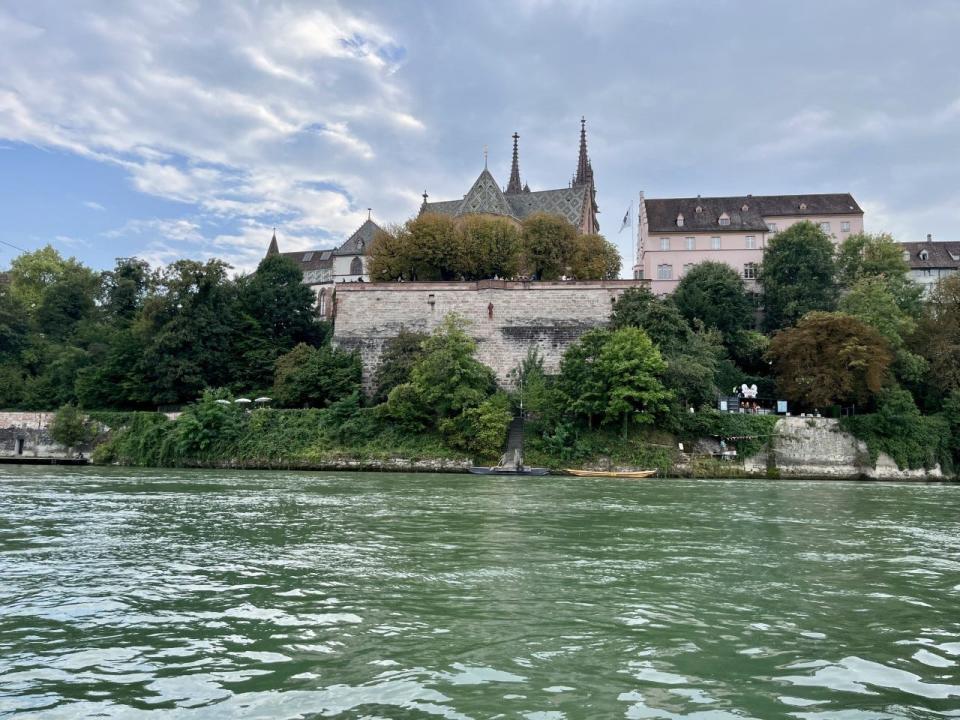
We aren’t sure what, but something pressed Hans and his wife, Susanna, to gather their six children and make the arduous months-long journey by boat, likely first down the Rhine, then across the Atlantic, and up the Schuylkill River into the rolling hills of Pennsylvania.
As far as my family knows, I was the first in my line to return. I wasn’t sure what I hoped to find. An answer maybe. At least some semblance of connection.
But first, a visit with my wife's family
Before we began our search in Switzerland, my wife Samantha and I first stopped in Paris to visit her cousin, a first-generation immigrant there from Lebanon. My wife’s father was born near the country’s capital Beirut. The “Paris of the Middle East,” as they used to call it.
Then, in the 1970s, the nation fractured along religious lines into a Civil War, driving more than a million residents from the small, proud and beautiful country. That included my father-in-law, who immigrated to the U.S. The rest of his family remained.
Opinion alerts: Get columns from your favorite columnists + expert analysis on top issues, delivered straight to your device through the USA TODAY app. Don't have the app? Download it for free from your app store.
Now, the next generation is newly suffering. At the hands of corrupt government, Lebanon has fallen into one of the worst economic collapses of any country in the last 150 years, according to the World Bank. More than half of the once-prosperous nation has slipped into poverty; most households receive just a few hours of state-provided power a day. Last month, a man robbed a bank for his own money after daily withdrawal limits prevented him from paying for life-saving healthcare for his father.
Mysterious 'CUP' cancer took my mom. As science grasps for a cure, her spirit endures.
My wife’s cousin is among a mass exodus of young people and professionals leaving Lebanon to find work in European cities and Dubai. Now when she goes back to visit, “there’s no one left but family,” she told us.
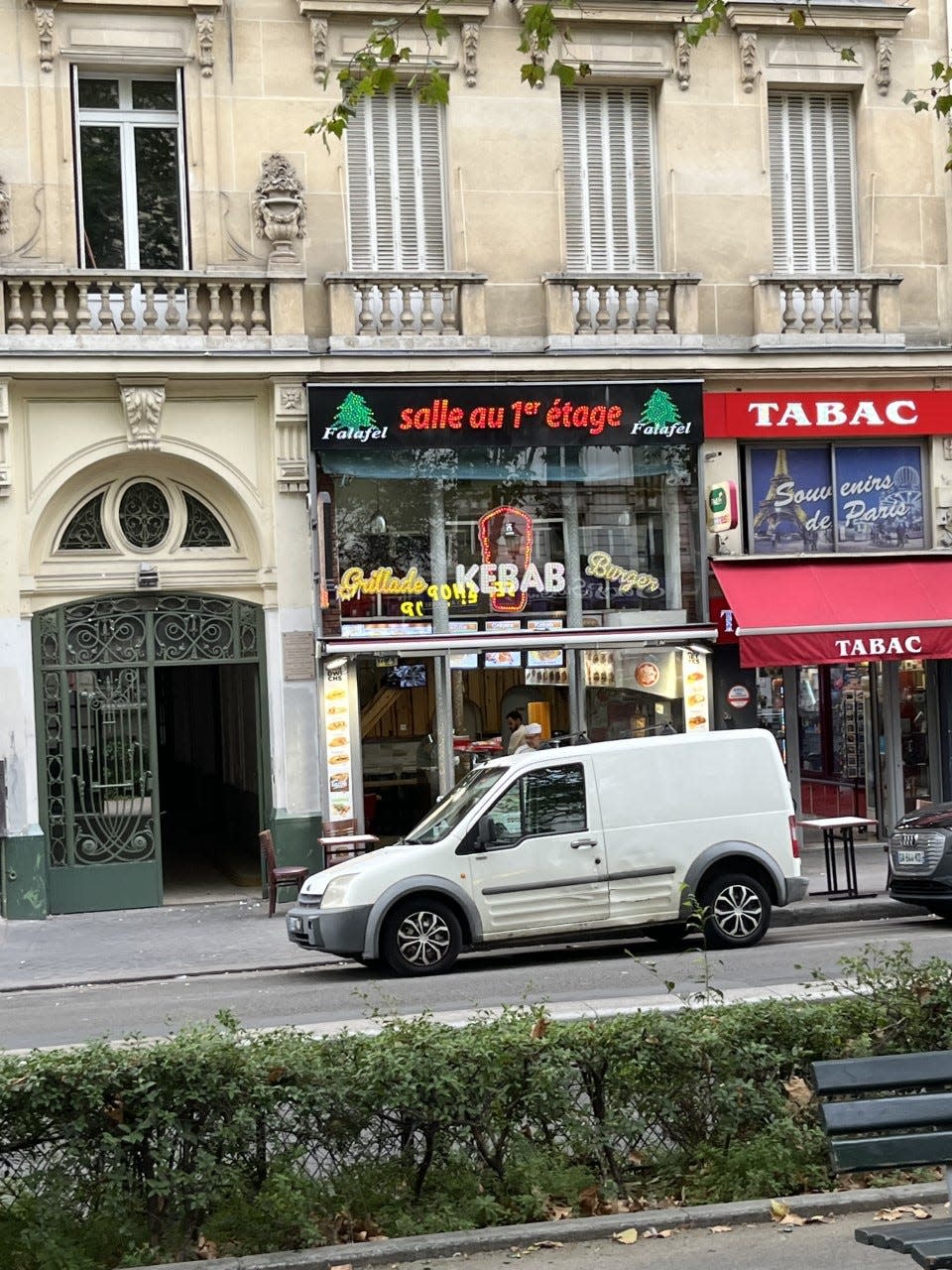
As we made our way through Europe, we noticed the prevalence of other immigrants from the Middle East, many likely pushed there by conflicts and crises in countries like Syria, Iraq and Egypt. We’d catch bits of Arabic and see the hijabs, an Islamic headscarf controversial in France. Seemingly around every corner were restaurants serving up kebabs and shawarma, a delicious, spit-roasted dish popular throughout the Middle East.
'I don’t want anyone to feel sorry for me': $2 until the next check and no money for pizza
Knowing the anti-immigrant backlash their presence has inspired in many European nations, I wondered what life was like for these new arrivals to the continent.
Touring my ancestral home
I couldn’t have felt more like a tourist in my own ancestral home. I don’t speak more than a few phrases of anything but English. Pennsylvania German, a dialect, made it eight generations in the U.S. to my grandparents, before being snuffed out by anti-German sentiment during World War II and the advent of television in every home.
So, my wife and I did what tourists do. We saw the Alps and their bell-collared cows, swam in glacial lakes, ate chocolate and spaetzle, and marveled at the charm of medieval cities and the efficiency of trains and trams.
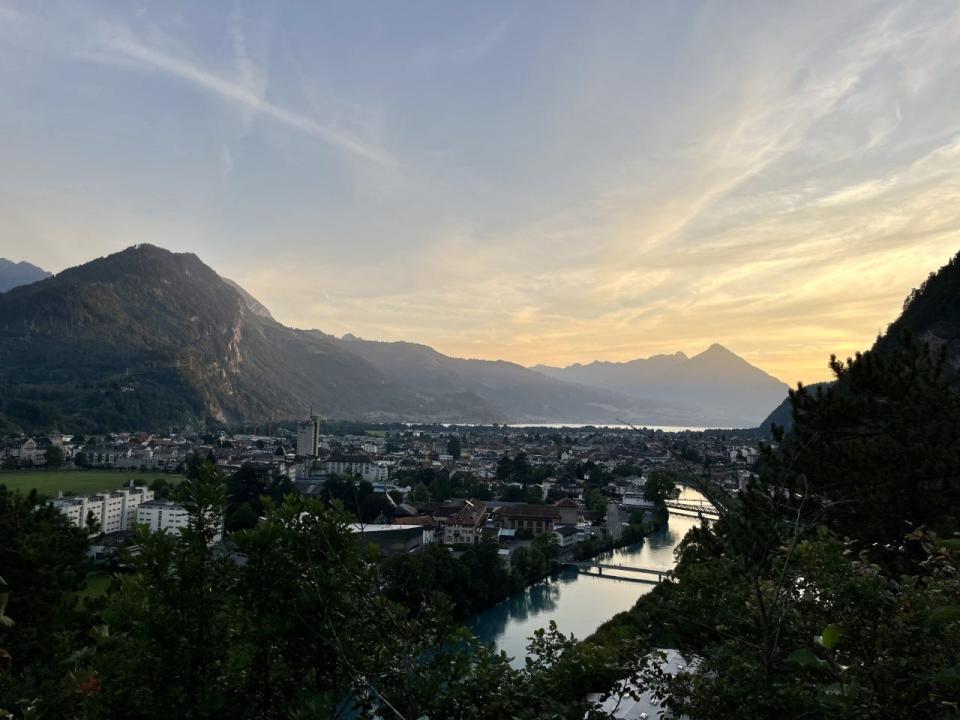
Then, on our last full day, we made it to the small village of Rafz, hometown of Hans and Susanna. It bore a striking resemblance to the countryside of my own home in Pennsylvania. I held a new hope.
I emailed a local Baggenstoss living there but failed to connect. We canvassed a cemetery to find a single gravestone bearing the family name, deceased 2018. We grabbed lunch and used my passport and lots of interpretative gesturing to try and overcome a language barrier with the waitress.
“I am a Baggenstoss, from here. 1743,” I told her.
“Oh wow,” she said, before remarking she wasn’t from the town. There was nothing else to say.
I was a stranger. This was not home.
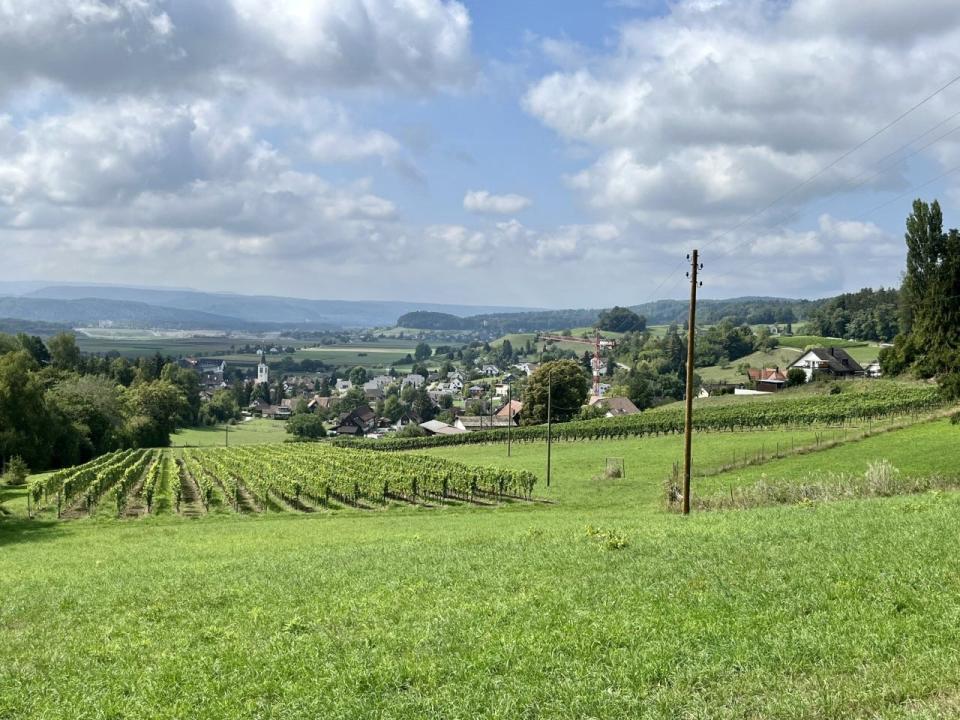
Finding answers and a connection
The next morning before our flight, I took one more chance. There was a Baggenstoss Bäckerei (bakery) about 40 minutes to the south. I had emailed the owner but told my wife I was setting expectations low. I predicted no Baggenstosses present, just a hired shopkeeper who spoke no English.
We parked outside the bakery and I took a photo next to its name just to make sure I had something secured. We walked inside and approached the counter. “Do you speak English?” I said in German to a woman working behind it.
Where'd you spend your summer vacation?: How does it measure to presidents' favorite spots?
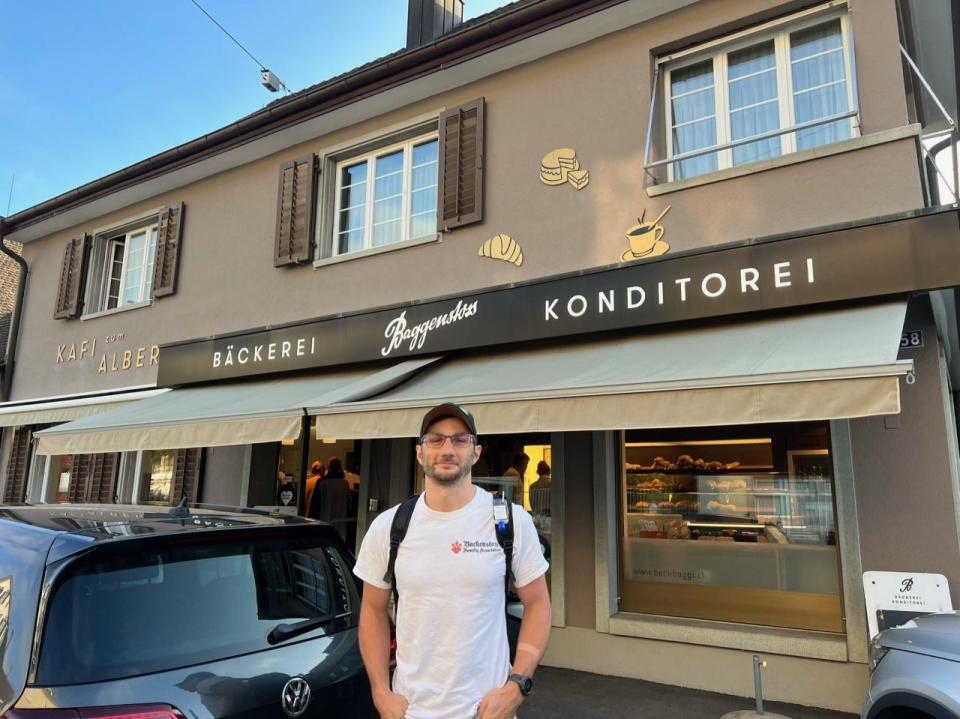
“Only a little.”
I showed her my passport, tried telling her about 1743.
“Wow,” she said.
I prepared to just settle for some baked goods, neatly packaged with the family name.
Then, from somewhere off to my left: “Are you Kyle?”
Albert Baggenstoss IV, also a fourth-generation bakery owner and wonderful speaker of English, was there to greet me. He had received my email.
Did we want to sit for an espresso? Yes. Did we want a tour of the bakery? Yes. Did we want to sample the chocolate? Absolutely.
As he rolled out the hospitality, I worked my way up to the question I most wanted to ask. Why might my ancestors have left this beautiful, prosperous country?
“Poverty,” he replied, instantly.
The early 1740s were tough years, he explained. Bitter winters and drought conditions peppered Europe. Crops failed. Inflation and hunger ensued, most notably in Ireland, but elsewhere, too.
Extreme weather: Is 'wokeness' responsible for US and European heat waves? Absolutely.
There was more history to know. Even earlier, Baggenstosses had splintered during the violent reformation. Catholics took one town and spelling, Protestants another town and spelling. I knew from my research that religious persecution continued to be a factor in driving other Germanic people to America, such as the Amish.
There, on fertile land originally possessed by the Lenape, they prospered. A will of a second-generation Baggenstoss claimed more than 100 acres and an annual bounty for his wife:
“Plenty of grapes from the one-acre vineyard; flax; one gallon apple-jack, one gallon rum; plenty of potatoes; plenty of cider and vinegar, plenty of winter apples and wood, plenty of everything she needs.”
From these roots, hundreds of us prospered. Baggenstosses served in wars from the Revolution to Vietnam. We became politicians, teachers, journalists. Americans.
I’ve long been proud of this heritage. But what my trip to Switzerland taught me was also to be sad. That we ever had to leave. That what once was home was now foreign.
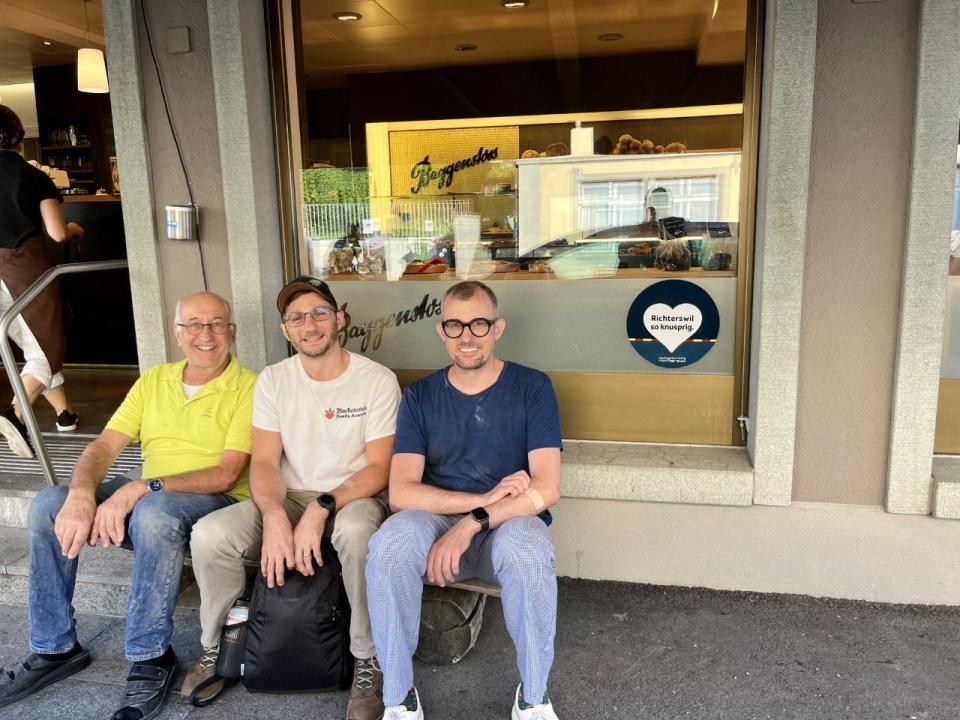
Albert IV’s father was in the bakery. He spoke less English. As we posed for a picture, he asked how many generations back my line had left. I held up all ten of my fingers. He smiled and shook his head, incredulous. We laughed, we talked, we connected.
On a long enough timeline, everyone was once the traveler, fleeing poverty or persecution in search of plenty. What makes the difference is how they are treated wherever they arrive.
Kyle Bagenstose covers climate change, chemicals, water and other environmental topics for USA TODAY. He can be reached at kbagenstose@gannett.com or on Twitter @kylebagenstose.
You can read diverse opinions from our Board of Contributors and other writers on the Opinion front page, on Twitter @usatodayopinion and in our daily Opinion newsletter. To respond to a column, submit a comment to letters@usatoday.com.
This article originally appeared on USA TODAY: What a trip to a Switzerland taught me about immigration

